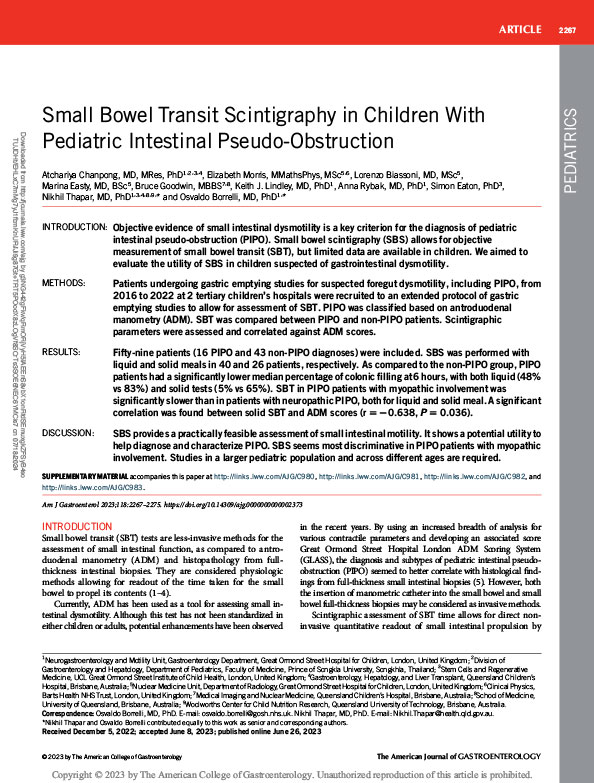Small Bowel Transit Scintigraphy in Children With Pediatric Intestinal Pseudo-Obstruction
December 2023
Introduction
Objective evidence of small intestinal dysmotility is a key criterion for the diagnosis of pediatric intestinal pseudo-obstruction (PIPO). Small bowel scintigraphy (SBS) allows for objective measurement of small bowel transit (SBT), but limited data are available in children. We aimed to evaluate the utility of SBS in children suspected of gastrointestinal dysmotility.
Methods
Patients undergoing gastric emptying studies for suspected foregut dysmotility, including PIPO, from 2016 to 2022 at 2 tertiary children’s hospitals were recruited to an extended protocol of gastric emptying studies to allow for assessment of SBT. PIPO was classified based on antroduodenal manometry (ADM). SBT was compared between PIPO and non-PIPO patients. Scintigraphic parameters were assessed and correlated against ADM scores.
Results
Fifty-nine patients (16 PIPO and 43 non-PIPO diagnoses) were included. SBS was performed with liquid and solid meals in 40 and 26 patients, respectively. As compared to the non-PIPO group, PIPO patients had a significantly lower median percentage of colonic filling at 6 hours, with both liquid (48% vs 83%) and solid tests (5% vs 65%). SBT in PIPO patients with myopathic involvement was significantly slower than in patients with neuropathic PIPO, both for liquid and solid meal. A significant correlation was found between solid SBT and ADM scores (r520.638, P 5 0.036).
Discussion
SBS provides a practically feasible assessment of small intestinal motility. It shows a potential utility to help diagnose and characterize PIPO. SBS seems most discriminative in PIPO patients with myopathic involvement. Studies in a larger pediatric population and across different ages are required.

